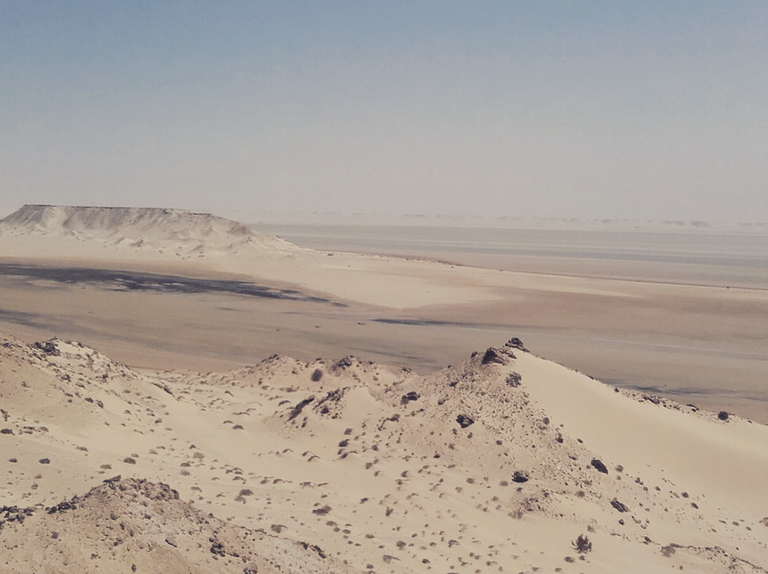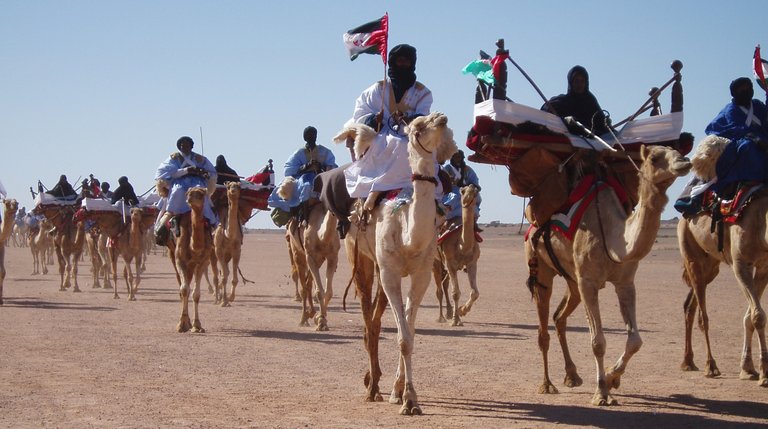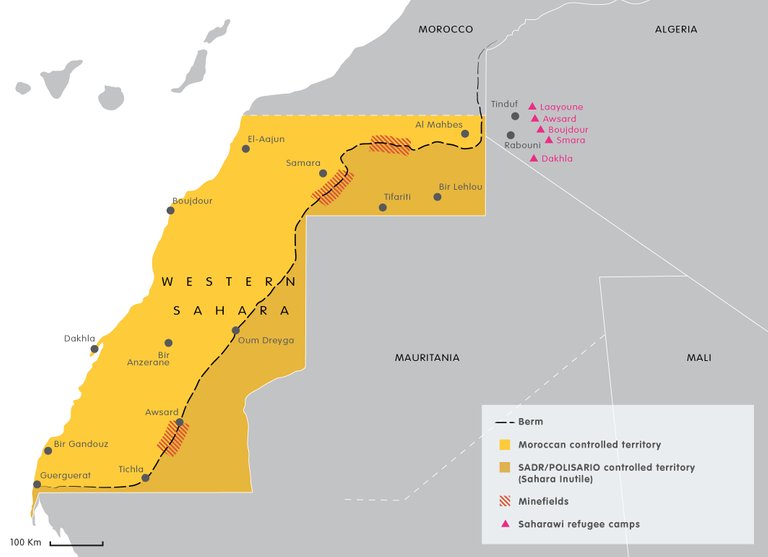In the midst of Catalonia's independence referendum, I think it is quite relevant to bring your attention to the Western Sahara situation.
Last month I traveled to Morocco to film a wedding. I was brought to a remote part in the Western Sahara, more specifically in Dakhla. A paradise location in between dunes and turquoise water with flamingos. It’s one of the best, if not the best spot to learn kite, as there is usually constant wind and the water is smooth for you to glide on.
Check out clip I made to have an idea:
https://www.instagram.com/p/Ba62LM7gl1I/?taken-by=chloesaintdenis

Beyond this surreal appearance there is a somber reality that the Moroccan government tries to hide from the tourist. Yet, on the first day of filming the wedding, I met a woman who had been living there for over 15 years. We soon started talking about the political situation as I was genuinely asking many questions. When she told me that she wouldn’t talk in public because there are spies listening, I realised the importance of the subject. It is a very controversial topic that one cannot talk about openly over there. People have strong political stances and if you are a threat to the Moroccan government, they can ban you from the country.

(credits: independent diplomat)
SO WHAT IS GOING ON THERE EXACTLY?
Basically Western Sahara used to be the only Spanish colony in the Partition of Africa until they decolonized in 1976. Today it is still a disputed area between the Moroccan and the Saharawi Arab Democratic Republic.
A BRIEF HISTORY
Post World War II, a decolonization movement began in the name of human rights.
As soon as Morocco gained independence in 1956 they claimed that the Spanish Sahara was theirs before colonization, and then Mauritania claimed it too. In 1976, when all Spanish force withdrew, the political front Polisario of local Saharawi claimed their independence.
Yet the UN declared that Western Sahara should be autonomous, as the majority of the population asked for it. This triggered The Green March where over 500,000 Moroccan civils and military demonstrated and invaded the Sahara region. Against the UN’s approval, the Madrid accord was signed, for the Spanish to give control over Sahara to Morocco and Mauritania.
When Mauritania decided to concede the land to the Saharawi in 1979, Morocco seized that land as well. From 1975 to 1991 there was a war between the Polisario front and Morocco. It ended in 1991 to make a referendum that still hasn’t happened till this day.

THE SITUATION TODAY
As of today, the Polisario only control 20% of the territory and their front is exiled in Algeria. Even though no country officially recognizes Moroccan sovereignty, most country support Saharawi autonomy under Moroccan autonomy. In 2004, the UN secretary general for Western Sahara resigned saying that there were no solutions to resolve the conflict that would suit both parties. Only 45 countries recognize the country as Sahrawi- most of these countries are African countries.
Western Sahara is completely taken over by Morocco, they repopulate the area and subsidize it to encourage migration of Moroccans. They are even building a university to make the youth and bring over their culture. This is how cultural assimilation and oppression happens, it’s a perverse process. Some Sahrawi do benefit from the infrastructures, the subsidies and the tourism but the vast majority are living in refugee camps near Mauritania or in Algeria.
The woman I met told me she had footage that she hid in the desert and was willing to give it to a filmmaker or journalist that would like to tell the story. Indeed, there is very little media coverage on the case. Those refugees are long forgotten by the public media. So if you are a photographer, reporter, journalist I encourage you to share the story.
FILM TO WATCH
I recommend to watch Son of the Clouds with Javier Bardem that covers the issue.
Yet this was already 5 years ago and the situation hasn’t improved.
Trailer
Watch the full film
Great article! Another people oppressed and suffering, far from the eye of the international community, and which will just remain a pawn on the chessboard of Spain/Morocco/Algeria/Mauretania. (However, I dont think we can compare Catalonia to the Sarahawi cause.)
I agree, it's not comparable to the same extent but still similar in the will for independence and power dynamics